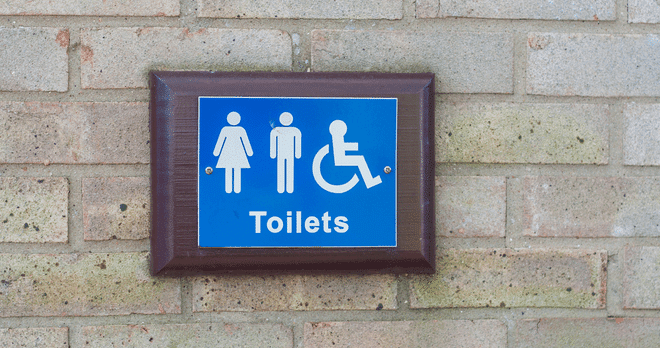Lives are being changed with a £30 million Government investment into Changing Places Toilets

It was delightful last week to see the Government announce a £30 million investment to provide Changing Places toilets in existing buildings in England. This is in addition to statutory guidance released in January which laid the groundwork for Changing Places toilets to be compulsory in certain new buildings. The combination of this investment and guidance is fantastic news for the estimated 250,000 people in the country who need these facilities to enable them to get out and about.
What is Changing Places and how did it all begin?
Many adults and children affected by cerebral palsy and other mobility challenges cannot use a standard accessible toilet. Parents are therefore left with little choice but to change their children on dirty toilet floors or in the back of vehicles. Some people simply choose not to leave home which, as many of us have found during the pandemic, is simply no way to live.
Fortunately this all began to change in 2005, when the Changing Places Consortium began working with local councils and a huge number of venues throughout the UK to introduce Changing Places toilets: properly equipped facilities to meet the requirements of those who need them. Each toilet has a height adjustable changing bench and hoist as well as enough space to accommodate both an individual and up to two carers.
How will the latest announcement change lives?
Robert Burley, Director of Campaigns at Muscular Dystrophy UK responded to the news:
“Today’s announcement of £30 million worth of funding to improve facilities in existing buildings is fantastic news for disabled people across England who need Changing Places toilets. Everyone has the right to use a public toilet when they need to, and these accessible toilets vastly improve a person’s independence and make planning days out much easier.”
Speaking to the BBC, Mrs Brisdion, mother of twins Erica and Hadley, said:
“It’s wonderful news – it offers freedom”.
Mrs Brisdion had been campaigning for better toilet facilities for seven years, since Hadley (who has cerebral palsy) was three. Mrs Brisdion said that Hadley faced the indignity of having to lay on the floor when he became too heavy for baby changing facilities.
Kerry Thompson, another Changing Places campaigner, is also delighted by the announcement:
“Knowing I have access to a Changing Places toilet lets me enjoy myself without having to worry about finding an accessible facility that can accommodate my needs. The additional funding from the government to improve facilities in existing buildings across England will give me and my husband the freedom that so many disabled people are desperate for.”
You can read about so many people’s experiences of how Changing Places has made a difference to their lives on their website.
As March marks Cerebral Palsy Awareness Month, this announcement could not have come at a better time.
I have the enormous privilege of working with families who have benefited hugely from Changing Places toilets and I share their joy in this much needed investment to tackle the exclusion that too may people experience when away from home.